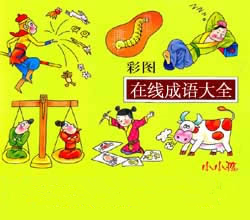英文读后感之呼啸山庄读后感
Published in 1847, WUtheRING HEIGHTS was not well received by the reading public, many of whom condemned it as sordid, vulgar, and unnatural--and author Emily Bronte went to her grave in 1848 believing that her only novel was a failure. It was not until 1850, when WUTHERING HEIGHTS received a second printing with an introduction by Emily's sister Charlotte, that it attracted a wide readership. And from that point the reputation of the book has never looked back. Today it is widely recognized as one of the GREat novels of English literature.
Even so, WUtheRING HEIGHTS continues to divide readers. It is not a pretty love story; rather, it is swirling tale of largely unlikeable people caught up in obsessive love that turns to dark madness. It is cruel, violent, dark and brooding, and many people find it extremely unpleasant. And yet--it possesses a grandeur of language and design, a sense of tremendous pity and GREat loss that sets it apart from virtually every other novel written.
the novel is told in the form of an extended FLASHback. After a visit to his strange landlord, a newcomer to the area desires to know the history of the family--which he receives from Nelly Deans, a servant who introduces us to the Earnshaw family who once resided in the house known as Wuthering Heights. It was once a cheerful place, but Old Earnshaw adopted a "Gipsy" child who he named Heathcliff. And Catherine, daughter of the house, found in him the perfect companion: wild, rude, and as proud and cruel as she. But although Catherine loves him, even recognizes him as her soulmate, she cannot lower herself to marry so far below her social station. She instead marries another, and in so doing sets in motion an obsession that will destroy them all.
WUtheRING HEIGHTS is a bit difficult to "get into;" the opening chapters are so dark in their portrait of the end result of this obsessive love that they are somewhat off-putting. But they feed into the flow of the work in a remarkable way, setting the stage for one of the most remarkable structures in all of literature, a story that circles upon itself in a series of repetitions as it plays out across two generations. Catherine and Heathcliff are equally remarkable, both vicious and cruel, and yet never able to shed their impossible love no matter how brutally one may wound the other.
As the novel coils further into alcoholism, seduction, and one of the most elaborately imagined plans of revenge it gathers into a ghostly tone: Heathcliff, driven to madness by a woman who is not there but who seems reflected in every part of his world--dragging her corpse from the grave, hearing her calling to him from the moors, escalating his brutality not for the sake of brutality but so that her memory will never fade, so that she may never leave his mind until death itself. Yes, this is madness, insanity, and there is no peace this side of the grave or even beyond.
It is a stunning novel, frightening, inexorable, unsettling, filled with unbridled passion that makes one cringe. Even if you do not like it, you should read it at least once--and those who do like it will return to it again and again
共2页,当前第1页1 相关作文: 看“猫咪小贝”、我的妹妹、小猫、动物王国、假日小队活动、夏天的荷塘、一天早上、我希望我的房间、我为妈妈煎鸡蛋、发现的眼睛热门作文成语素材
- 匪夷所思 匪:不是;夷:平常。指言谈行动离奇古怪,不是一般人根据常情所能想象的。
- 安分知足 安于本分,对自己所得到的待遇知道满足。
- 百了千当 比喻妥贴,有着落。
- 诽誉在俗 诽:指诽谤;誉:赞扬;俗:风气、习惯。诽谤或赞扬在于当时的风习。后来引申指风气、习惯的作用非常大。
- 背城一战 背:背向。在自己城下和敌人决一死战。多指决定存亡的最后一战。
- 挨肩擦背 形容人多拥挤。
- 博洽多闻 洽:广博;闻:见闻。知识丰富,见闻广博。
- 肥马轻裘 裘:皮衣。骑肥壮的马,穿轻暖的皮衣。形容阔绰。
- 不逞之徒 不逞:不得志,不如意;徒:人(含贬义)。因心怀不满而闹事捣乱的人。
- 不可言状 言:说;状:描绘。无法用言语形容。
- 不知去向 向:方向。不知道哪里去了。
- 不知进退 不知道应当前进还是应当后退。比喻无决断。也形容言语行动没有分寸。
- 非分之想 非分:不属自己分内的。妄想得到本分以外的好处。
- 布帛菽粟 帛:丝织品;菽:豆类;粟:小米,泛指粮食。指生活必需品。比喻极平常而又不可缺少的东西。
- 繁文末节 文:规定、仪式;节:礼节。过分繁琐的仪式和礼节。比喻琐碎多余的事情。
